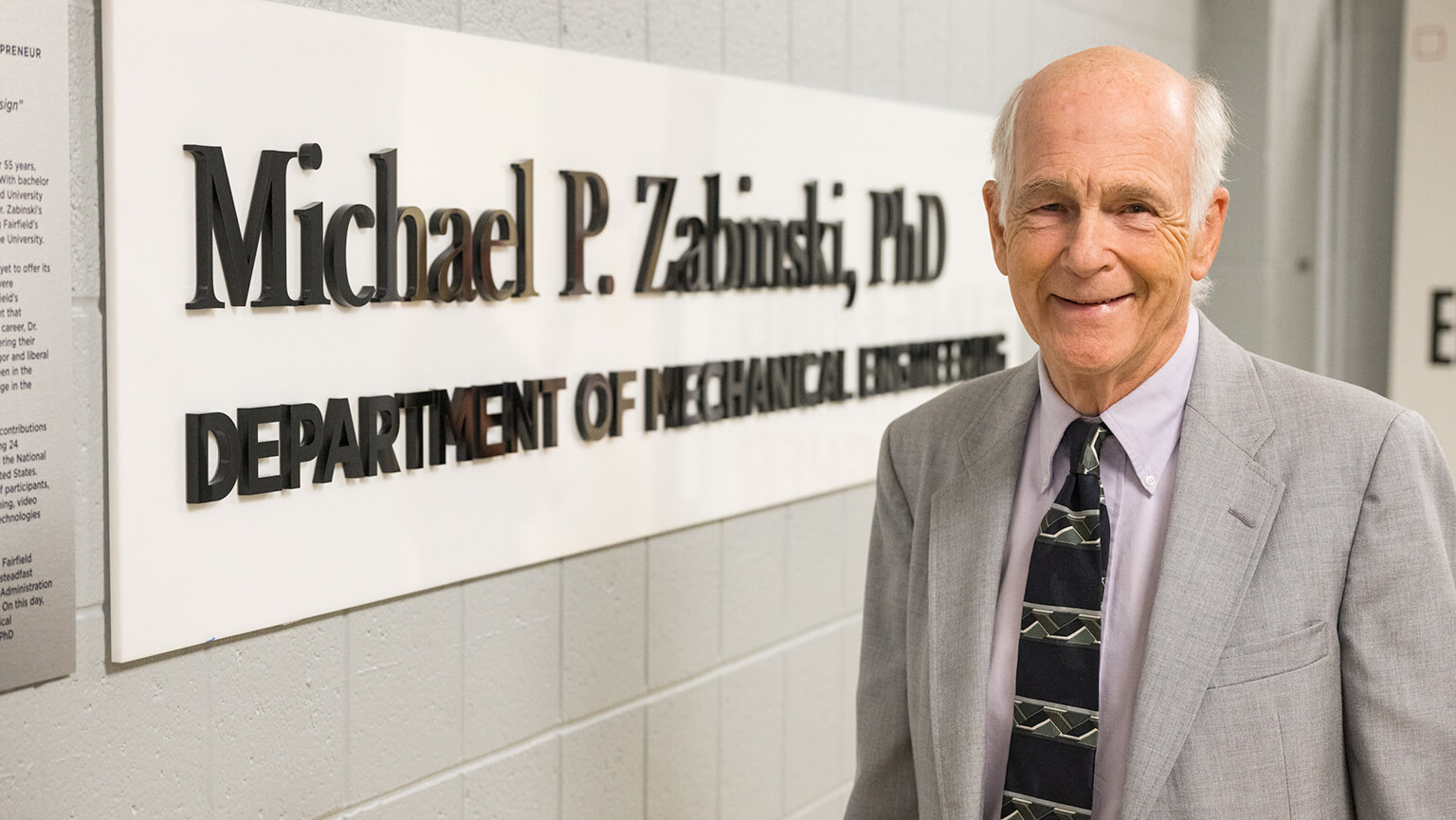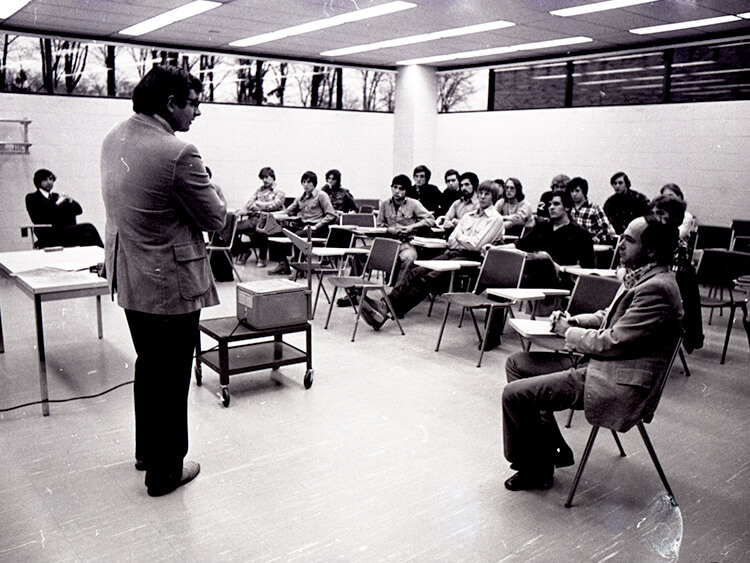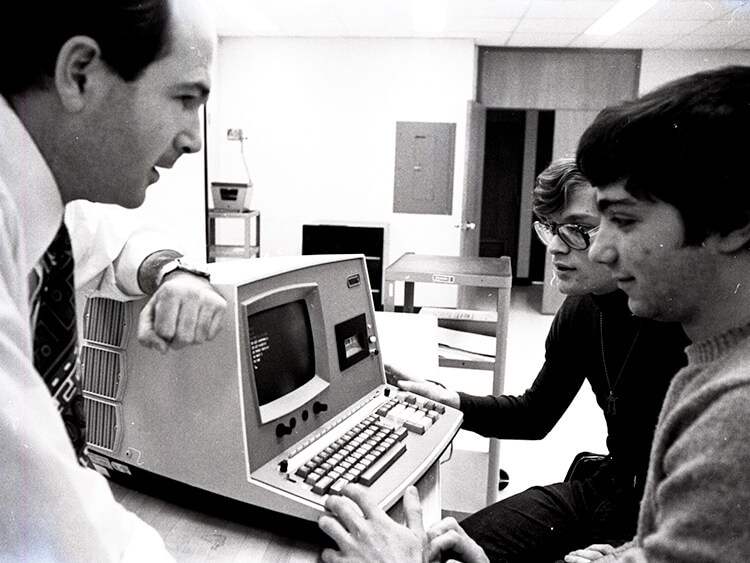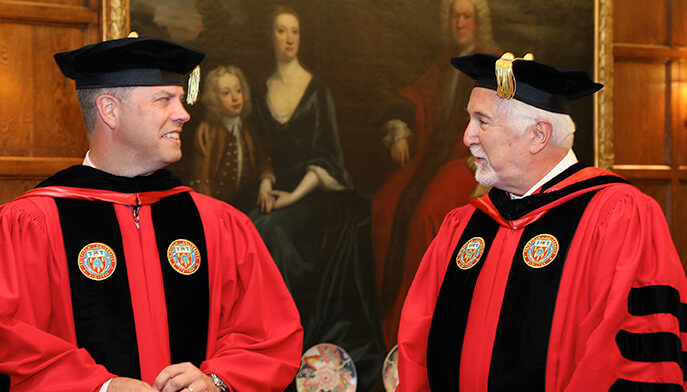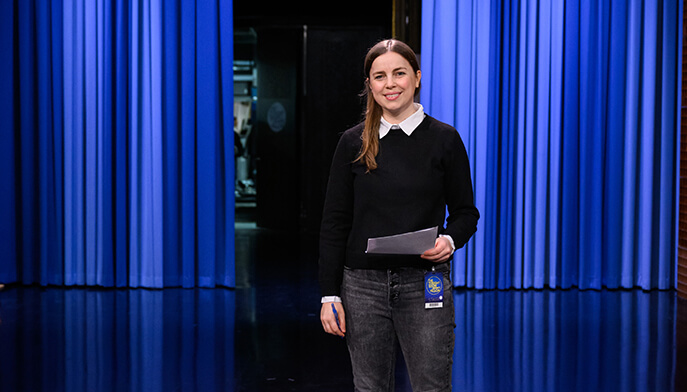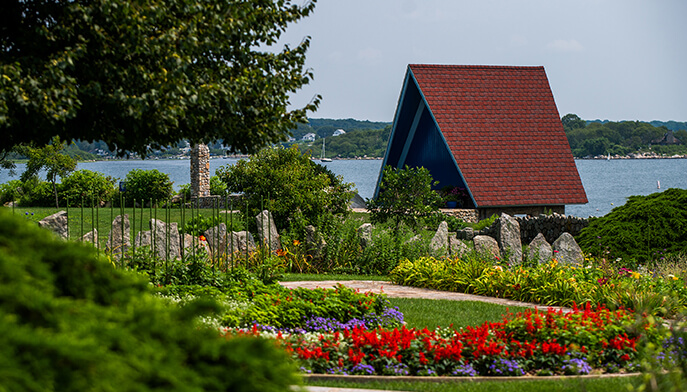Michael P. Zabinski, PhD, professor of engineering, inspired “literally thousands” of students over his 55-year career at Fairfield.
For 55 years, Michael P. Zabinski, PhD, professor of mechanical engineering, prepared countless students for successful careers in engineering and computer science. His own career — defined by innovation, mentorship, and a passion for teaching — has left an indelible mark on Fairfield’s School of Engineering and Computing, and beyond.
Dr. Zabinski’s journey to Fairfield is as remarkable as his legacy. When entering college in 1958, he was initially uncertain about his future career. “I wasn’t quite ready to decide what I wanted to major in,” he said. “My father was an engineer, so I became an engineer.”
Armed with bachelor’s and master’s degrees in mechanical engineering from the University of Connecticut, in 1963 he went to work at Olin Corporation, where he excelled in metals research and development.
While at Olin, the young engineer pursued a doctorate at Yale University. Upon earning his PhD in engineering and applied science in 1969, Dr. Zabinski was recruited by Fairfield University to direct the newly launched 3+2 Engineering Program, an initiative he quickly embraced. The program allowed students to study at Fairfield for three years before transferring to engineering institutions such as University of Connecticut and Columbia University for two years, ultimately earning both a BA in a liberal arts discipline from Fairfield and a BS in engineering from the partner school.
Even back then, Dr. Zabinski’s influence extended beyond the classroom, and in at least one instance, into homes across the country. During the oil embargo of the 1970s, as American families were being encouraged to set their thermostats to 65°F (18°C) during the day and as low as 55°F (13°C) at night to save energy, he collaborated with Fairfield students on research into thermostat setback and energy consumption.
